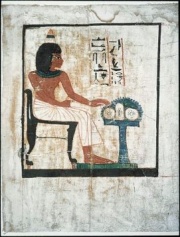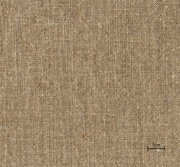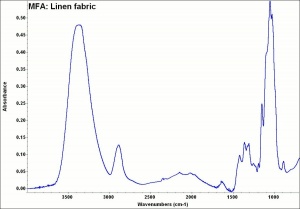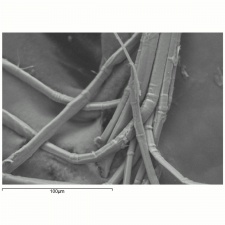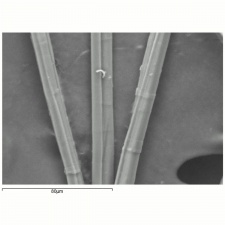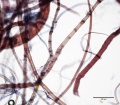Linen
Description
A fabric woven from the bast fibers of the Flax plant, especially from the Linen usitatissimum plant native to the Mediterranean region and the Atlantic coast of Europe. Flax has been cultivated since before 5000 BCE for its fibers. To obtain the fibers, the flax plants are harvested, dried, retted, crushed, then washed and cleaned. Flax fibers are yellowish to gray in color. They are thinner and longer than Cotton, but the fiber tube has thicker walls resulting in a stronger thread. Microscopically, linen fibers have knots and joints that are not seen on cotton. Flax is used to make linen cloth as well as for shoe thread, bookbinding thread, fish line, twine, and paper. Linen cloth has long been preferred as canvases for easel painting because it is durable, lightweight, and accepts paint well.
Synonyms and Related Terms
flax (Linen usitatissimum); lin (Fr.); Leinen (Deut.); linnen (Ned.); linne (Sven.); lino (Esp.)
Other Properties
Resistant to alkali, dilute acid, most organic solvents. Degrades in strong acids. Elongation = 1.8% (dry); 2.2% (wet); Moisture regain = 12%; Fiber length = 6-65 mm; Fiber width = 8-32 microns; Chlorine test stains linen fibers a bright red. Nodes are distributed randomly along the fiber length with some crossing to form x or v shapes.
Linen burns but is difficult to ignite; the flame is readily extinguish by blowing. Heated fabric adjacent to the burnt area is very brittle. Ash is readily crumbled.
| Density | 1.5 |
|---|
For paper fiber properties, see Flax
Hazards and Safety
Degrades slowly in sunlight and temperatures above 120C. Combustible. Resistant to mildew, insects and pests. Silverfish will eat starched flax.
Additional Information
° G.Cook, Handbook of Textile Fibres:I Natural Fibres, 5th edition, Merrow Publishing Co., Durham, England, 1984.
° T.Collings, D.Miller, 'The Identification of Oriental Paper Fibers' The Paper Conservator vol. 3, 1978.
Comparisons
Additional Images
Authority
- J.Gordon Cook, Handbook of Textile Fibres:I Natural Fibres, Merrow Publishing Co. , Durham, England, 1984
- The Dictionary of Art, Grove's Dictionaries Inc., New York, 1996
- Ralph Mayer, A Dictionary of Art Terms and Techniques, Harper and Row Publishers, New York, 1969 (also 1945 printing)
- Hoechst Celanese Corporation, Dictionary of Fiber & Textile Technology (older version called Man-made Fiber and Textile Dictionary, 1965), Hoechst Celanese Corporation, Charlotte NC, 1990
- Matt Roberts, Don Etherington, Bookbinding and the Conservation of Books: a Dictionary of Descriptive Terminology, U.S. Government Printing Office, Washington DC, 1982
- Reed Kay, The Painter's Guide To Studio Methods and Materials, Prentice-Hall, Inc., Englewood Cliffs, NJ, 1983
- Rosalie Rosso King, Textile Identification, Conservation, and Preservation, Noyes Publications, Park Ridge, NJ, 1985
- Art and Architecture Thesaurus Online, http://www.getty.edu/research/tools/vocabulary/aat/, J. Paul Getty Trust, Los Angeles, 2000
- Wikipedia, the free encyclopedia, at http://www.wikipedia.com Comment: http://en.wikipedia.org/wiki/Linen (Accessed Sept. 7, 2005)
